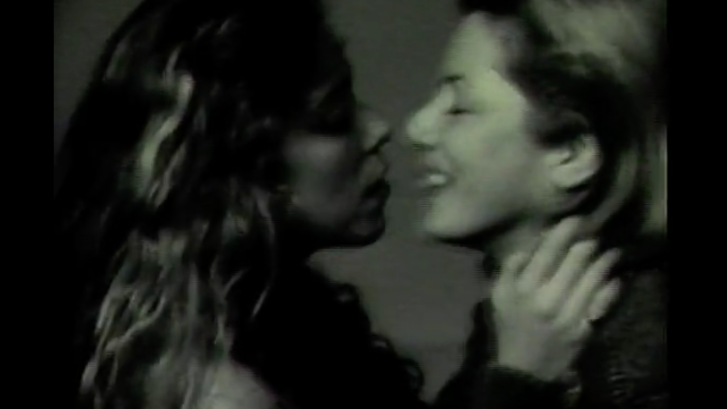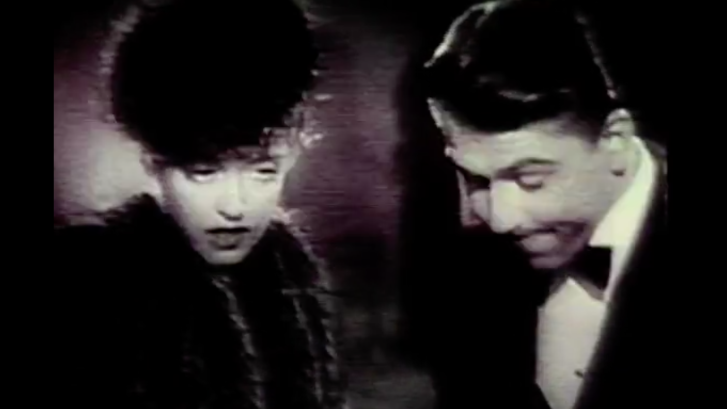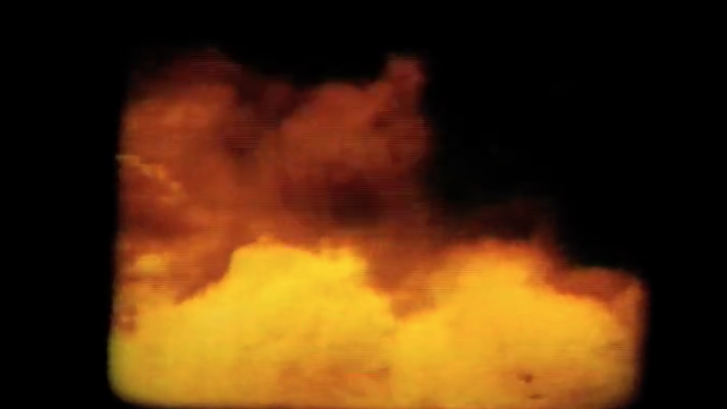They Are Lost To Vision Altogether

A poetic portrait of sex in the age of AIDS.
THEY ARE LOST TO VISION ALTOGETHER presents a disappearing act, a steady sleight-of-hand which erases the not-so-distant past. (Television flickers, revealing a seamless, yet slivered visual history punctuated by news stories, old movies, commercials: an unending flow which speaks to the non-existent "general population.”) THEY ARE LOST TO VISION ALTOGETHER recognizes our bodies as the ultimate site of control, a location in which the construction of identity meets the surveillance of the physical. The tape refuses to leave lesbians and gay men unseen while troubling the act of seeing itself. It also acts as erotic retaliation on legislation such as the Supreme Court sodomy ruling - declaring the private bedroom as open target for the State - or the Helms Amendment - the U.S. government's refusal to fund explicit AIDS prevention information for gay men, lesbians and IV drug users. It is an attempt to reclaim eroticism and to address the contradictions of sexuality and romance in the face of a monolithic and culturally compulsory heterosexuality. They Are Lost To Vision Altogether finds queer history where it can and invents the rest. Perhaps most of all, it freely admits ambivalence and attempts to "not be lost or pushed into the sea of what others believe to be our collective history. The language of mass media, the gesture of medical examination, and the intimacy of conversation all act as shorthand to insist upon a politic which resides in every social interaction. Defying the reduction which would suppose that lyricism and didacticism are irreconcilable, THEY ARE LOST TO VISION ALTOGETHER invites a reconsideration of the ways in which we view the impact of AIDS on daily life." (Tom Kalin)
details
-
Runtime
13 min -
Country
United States -
Year of Presentation
0000 -
Year of Production
1989 -
Director
Tom Kalin -
Cast
-
Production Company
Tom Kalin -
Berlinale Section
-
Berlinale Category
Short Film
pictures from the movie
Biography Tom Kalin
Tom Kalin was born in 1962 in Chicago. He earned a B.F.A. from the University of Illinois and an M.F.A. from the Art Institute of Chicago, and studied in the Whitney Museum's Independent Study Program. He has written for publications such as Art Forum, Aperture, and The Village Voice, and has taught at California Institute of the Arts, Brown University, and Yale University. He is currently Assistant Professor in Columbia University's Graduate Film Division. Kalin has received the John Simon Guggenheim Memorial Foundation Fellowship, as well as grants and awards from the Rockefeller Foundation, Jerome Foundation, Paul Robeson Fund, New York State Council for the Arts, and the National Endowment for the Arts. Swoon (1992) received the Best Cinematography award at the Sundance Film Festival and the Open Palm Award (recognizing outstanding first features) from the Independent Feature Project, among other awards. Kalin's work has been screened at the The Getty Research Institute and American Film Institute, Los Angeles; The Museum of Modern Art and the Whitney Museum of American Art, New York; Metrograph Cinema, New York; Institute of Contemporary Art, Philadelphia; and at festivals in Hong Kong, Berlin, Amsterdam, New York, and Barcelona, among others. He lives in New York.
Filmography Tom Kalin
1993 Nomads | 2003 The Robots of Sodom | 2007 Savage Grace


